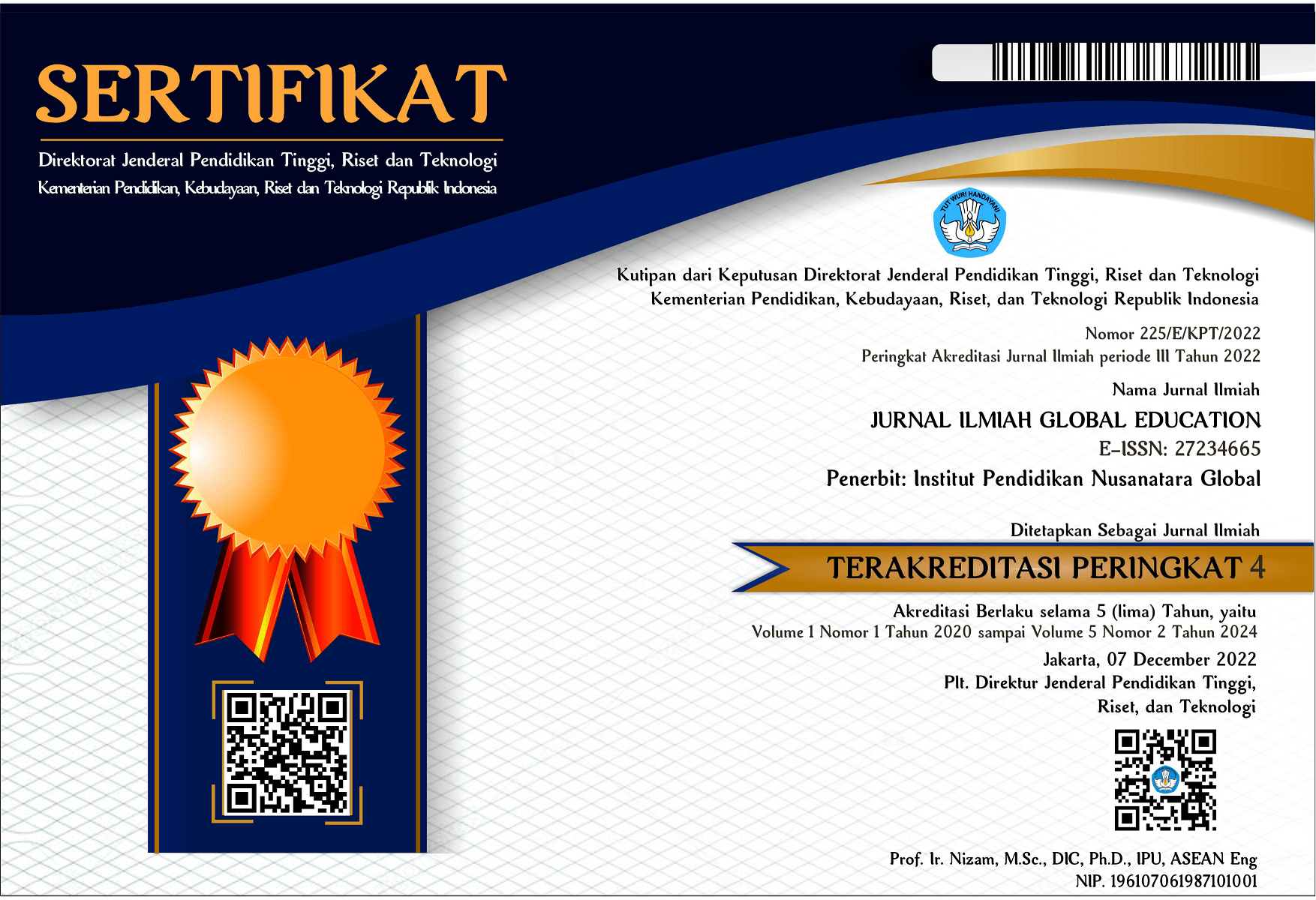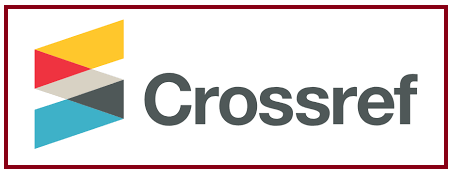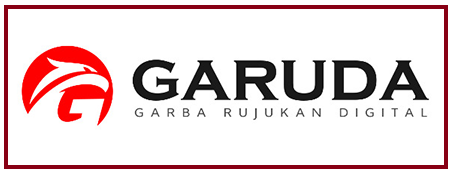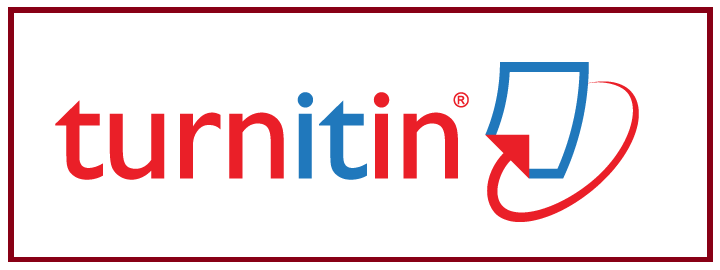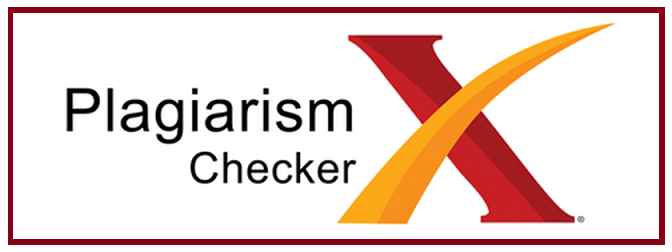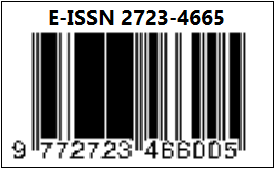Enhancing Ninth-Grade Writing Skills: Mind Mapping and Team Game Tournament Techniques for Teaching Report Texts
DOI:
https://doi.org/10.55681/jige.v5i3.3369Keywords:
Mind Mapping (MP), Team Game Tournament (TGT), Report Writing Skills, Mixed-Methods Approach, Student EngagementAbstract
This study investigates the effectiveness of Mind Mapping and Team Game Tournament (TGT) techniques in enhancing the report writing skills of ninth-grade students at SMPN 7 Tangerang. The research was conducted over the first semester of the 2023/2024 academic year, involving 67 participants divided into two groups for each teaching method. Utilizing a mixed-methods approach, the study combined quantitative analysis of pre-test and post-test scores with qualitative insights from semi-structured interviews to evaluate and compare the impact of each technique. Quantitative findings indicated that both methods significantly improved students' writing abilities. The Mind Mapping group's average scores increased from 65.52 to 82.91, while the TGT group's scores rose from 64.53 to 80.35. However, the difference in effectiveness between the two techniques was not statistically significant. Qualitatively, students expressed a preference for Mind Mapping for its simplicity and aid in organizing thoughts and generating ideas. Conversely, TGT was favored for its engaging and collaborative nature, enhancing learning through competitive and cooperative dynamics. The study suggests that both techniques are valuable educational tools. It recommends their continued use to cater to different learning styles, potentially in combination, to maximize student engagement and learning outcomes in writing education.
Downloads
References
Al Kamli, H. M. (2019). The Effect of Using Mind Maps to Enhance EFL Learners’ Writing Achievement and Students’ Attitudes Towards Writing at Taif University. Arab World English Journal, 232, 1–92. https://doi.org/10.24093/awej/th.232
Amalia, H. (2021). Teaching writing to junior high school students : A focus on challenges and solutions. JOURNAL OF LANGUAGE AND LINGUISTIC STUDIES, 17(2), 794–810. https://www.jlls.org/index.php/jlls/article/view/2079/724
Arifin, S. (2020). L2 WRITING STRATEGIES USED BY HIGH SCHOOL. PROJECT (Professional Journal of English Education), 3(6), 805–815. https://doi.org/https://doi.org/10.22460/project.v3i6.p805-815
Astria, M., & Maisaroh, E. (2021). Improving Students’ Writing Ability Through Teams-Games-Tournament (Tgt) on Procedure Text of the Third Grade At Smp Pab 2 Helvetia. Jurnal FISK, 2(1), 60–67. https://www.academia.edu/89086968/Improving_Students_Writing_Ability_Through_Teams_Games_Tournament_TGT_on_Procedure_Text_of_the_Third_Grade_at_SMP_Pab_2_Helvetia
Bukhari, S. S. F. (2016). Mind Mapping Techniques to Enhance EFL Writing Skill. International Journal of Linguistics and Communication, 4(1). https://doi.org/10.15640/ijlc.v4n1a7
Buzan, T. (2006). The Buzan Study Skill Handbook : The Shortcut to Success in Your Studies with Mind Mapping, Speed Reading and Winning Memory Techniques. In BBC Active. http://gen.lib.rus.ec/book/index.php?md5=3B07A8C9F13F71ACFADE882484DE8DBA
Creswell, J. W. (2013). QUALITATIVE INQUIRY & RESEARCH DESIGN (3rd ed., Vol. 21, Issue 1). Sage Publication, Inc. http://www.ceil-conicet.gov.ar/wp-content/uploads/2018/04/CRESWELLQualitative-Inquary-and-Research-Design-Creswell.pdf
Eryilmaz, A., & Yesilyurt, Y. E. (2022). Foreign Language Writing as a Developmental Process (Foundation, Expansion, Development, and Completion): The FEDCom Model. International Journal of Contemporary Educational Research, 7(2), 307–334. https://doi.org/10.33200/ijcer.768768
Farrand, P., Hussain, F., & Hennessy, E. (2002). The efficacy of the “mind map” study technique. Medical Education, 36(5), 426–431. https://doi.org/10.1046/j.1365-2923.2002.01205.x
Firman, E., & Imran, F. (2017). THE EFFECTIVENESS OF MIND-MAPPING TOWARDS STUDENTS’ WRITING SKILL. Nature and Science, 15(5), 55–68. https://doi.org/10.1360/N972017-00542
Gillies, R. M. (2016). Cooperative learning: Review of research and practice. Australian Journal of Teacher Education, 41(3), 39–54. https://doi.org/10.14221/ajte.2016v41n3.3
Haryono, P., & Tukiyo, T. (2022). the Effect of Mobile Learning-Based Team Game Tournament Learning Model on Recount Text Writing Ability: the Role of Learning Style As Variable Moderation. English Review: Journal of English Education, 10(2), 729–736. https://doi.org/10.25134/erjee.v10i2.6332
Johnson, D. W., & Johnson, R. T. (2009). An educational psychology success story: Social interdependence theory and cooperative learning. Educational Researcher, 38(5), 365–379. https://doi.org/10.3102/0013189X09339057
Karyati, A., & Hapsari, P. W. (2024). TGT (Teams Games Tournament) Cooperative Learning Model in Kanji Courses to Improve Japanese Vocabulary Mastery. Journal of Japanese Language Education and Linguistics, 8(1), 1–19. https://doi.org/10.18196/jjlel.v8i1.21202
Khoiriyah, : (2014). Increasing the Students’ Writing Skill through Mind Mapping Technique. Nusantara of Research, 01(Increasing the students writing skill through Mind Mapping Technique), 178–185. https://ojs.unpkediri.ac.id/index.php/efektor/article/view/54/10
Matitaputty, J. K., Susanto, N., Fadli, M. R., Ramadhan, I., & Manuputty, C. J. (2023). The Effect of Team Games Tournament (TGT) in Social Science Learning to Improve Student Learning Outcomes. Al Ibtida: Jurnal Pendidikan Guru MI, 10(2), 374. https://doi.org/10.24235/al.ibtida.snj.v10i2.15037
Pablo, J. C., & Lasaten, R. C. (2018). Writing Difficulties and Quality of Academic Essays of Senior High School Students. Asia Pacific Journal of Multidisciplinary Research, 6(4), 46–57. http://www.apjmr.com/wp-content/uploads/2018/08/APJMR-2018-6.4.06.pdf
Sugiyono. (2018). Metode Penelitian Kuantitatif, Kualitatif, dan R&D (Issue January). https://www.researchgate.net/profile/Hery-Purnomo/publication/377469385_METODE_PENELITIAN_KUANTITATIF_KUALITATIF_DAN_RD/links/65a89006bf5b00662e196dde/METODE-PENELITIAN-KUANTITATIF-KUALITATIF-DAN-R-D.pdf
Tarin, S., & Yawilong, R. (2022). Using Mind-Mapping to Develop EFL Students’ Writing Performance. English Language Teaching, 15(11), 14. https://doi.org/10.5539/elt.v15n11p14
Veloo, A., Md-Ali, R., & Chairany, S. (2016). Using cooperative teams-game-tournament in 11 religious school to improve mathematics understanding and communication. Malaysian Journal of Learning and Instruction, 13(2), 97–123. https://doi.org/10.32890/mjli2016.13.2.4
Vo, T. K. A., Long, N. Van, & Nhi, H. T. T. (2024). Efl Learners’Readiness and Challenges for Immediate Online Learning: a Case Study in Vietnam. Journal of Institutional Research …, 22(2). https://doi.org/150. https://doi.org/10.22437/irje.v4i1.9089
Wahid, J. H., & Sudirman, S. (2023). The Effect of Mind Mapping Technique on Students’ Writing Skills. Journal of Languages and Language Teaching, 11(1), 39. https://doi.org/10.33394/jollt.v11i1.6692
Wyk, M. M. van. (2011). The Effects of Teams-Games-Tournaments on Achievement, Retention, and Attitudes of Economics Education Students. Journal of Social Sciences, 26(3), 183–193. https://doi.org/10.1080/09718923.2011.11892895
Downloads
Published
How to Cite
Issue
Section
License
Copyright (c) 2024 Syaadiah Arifin, Sulastri

This work is licensed under a Creative Commons Attribution-ShareAlike 4.0 International License.


